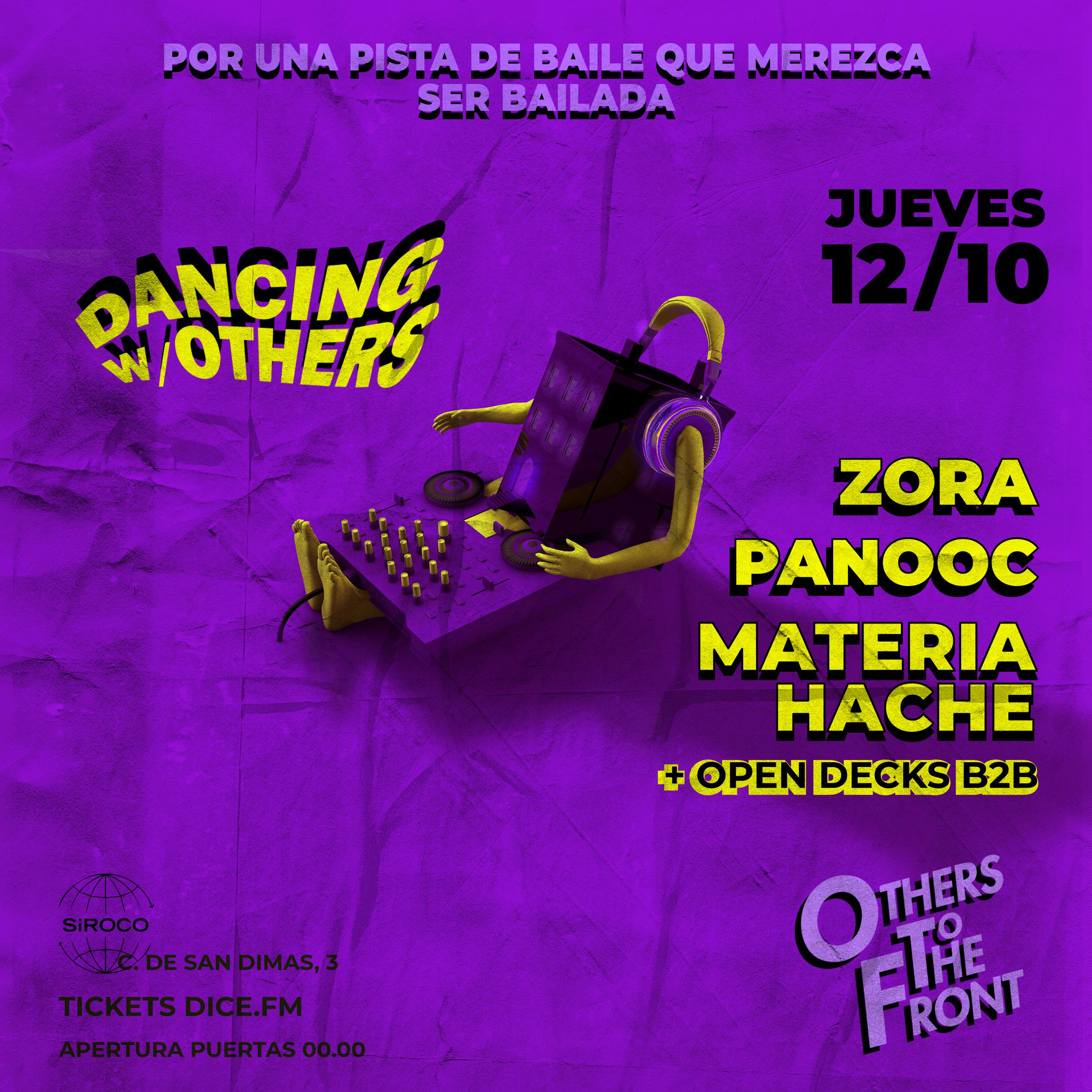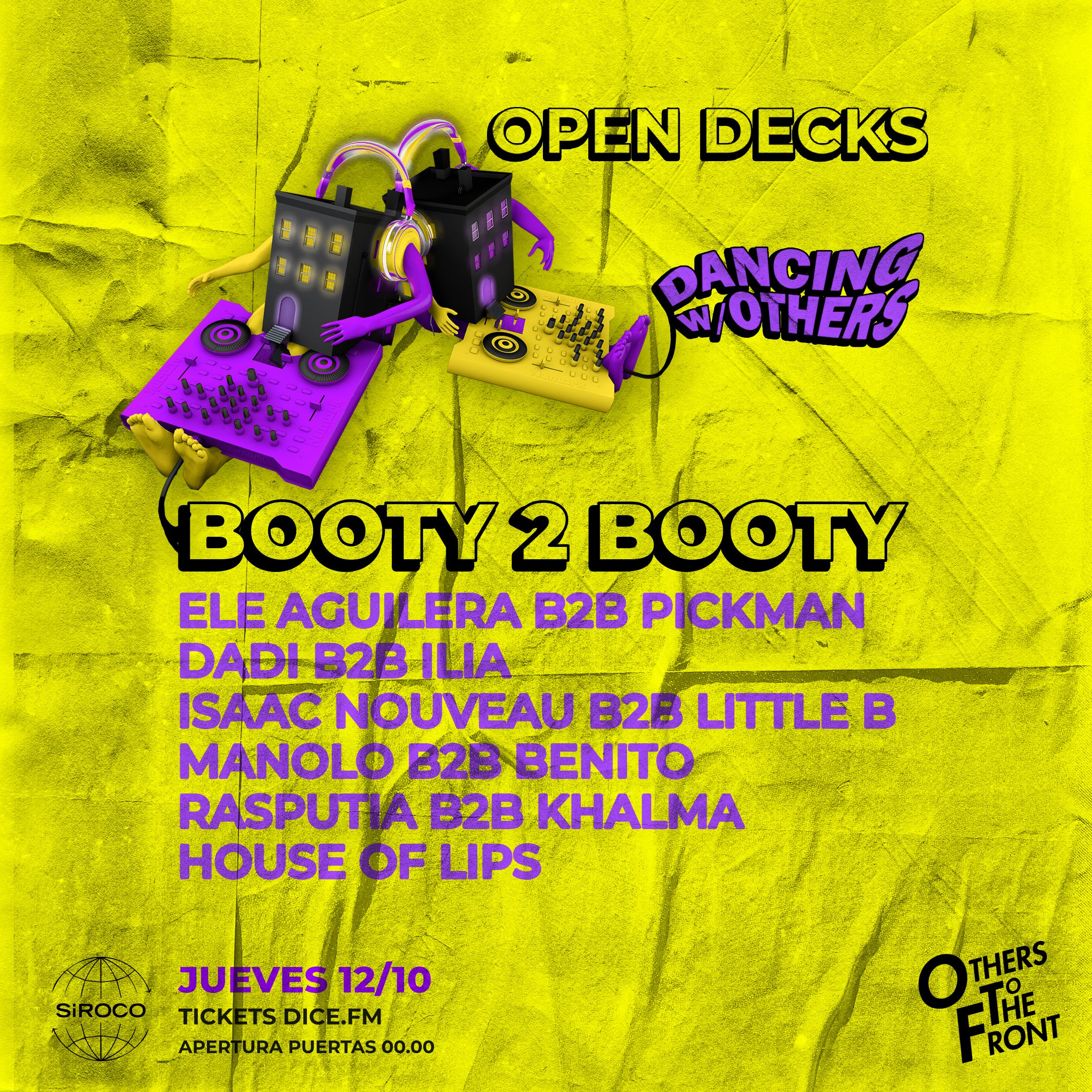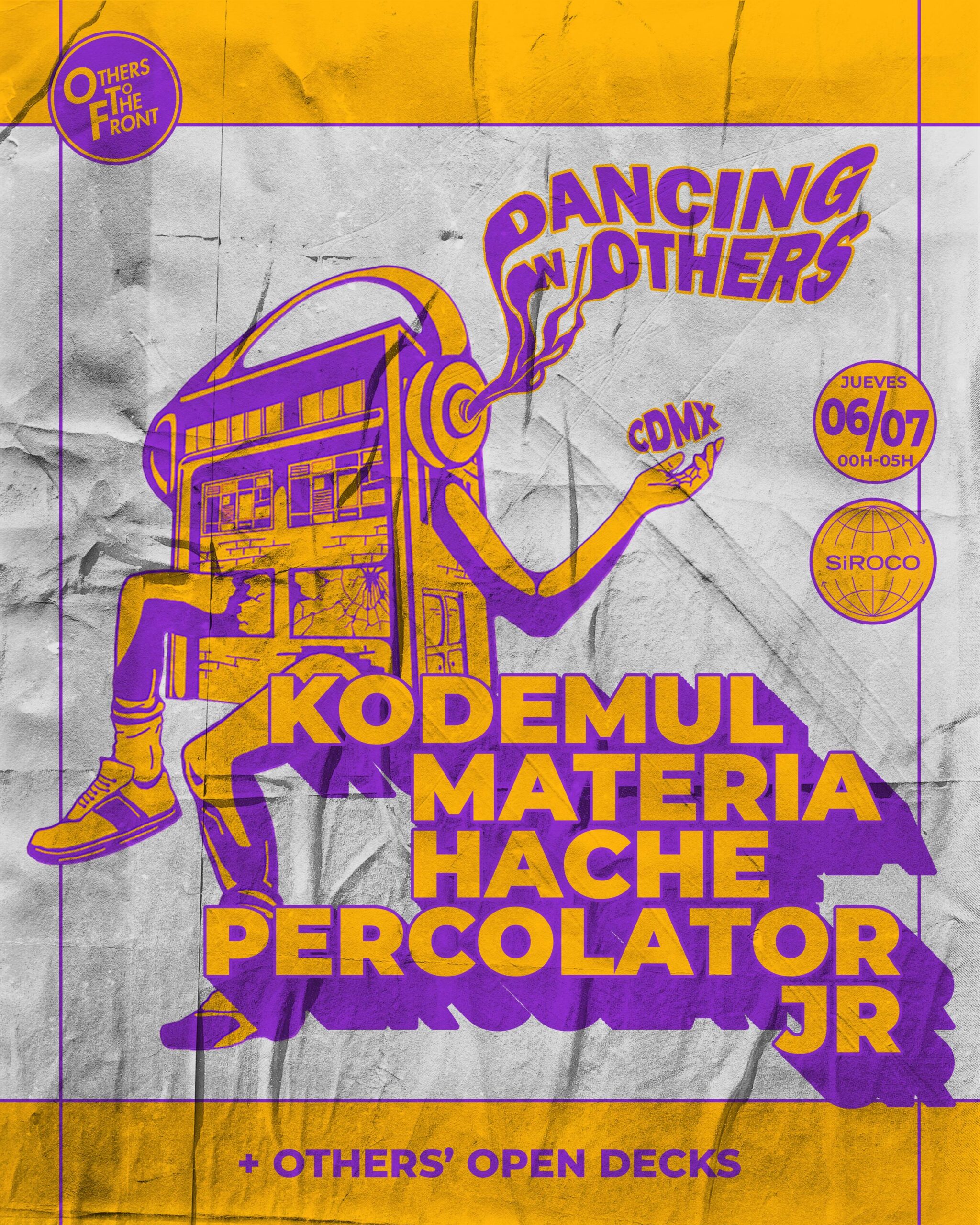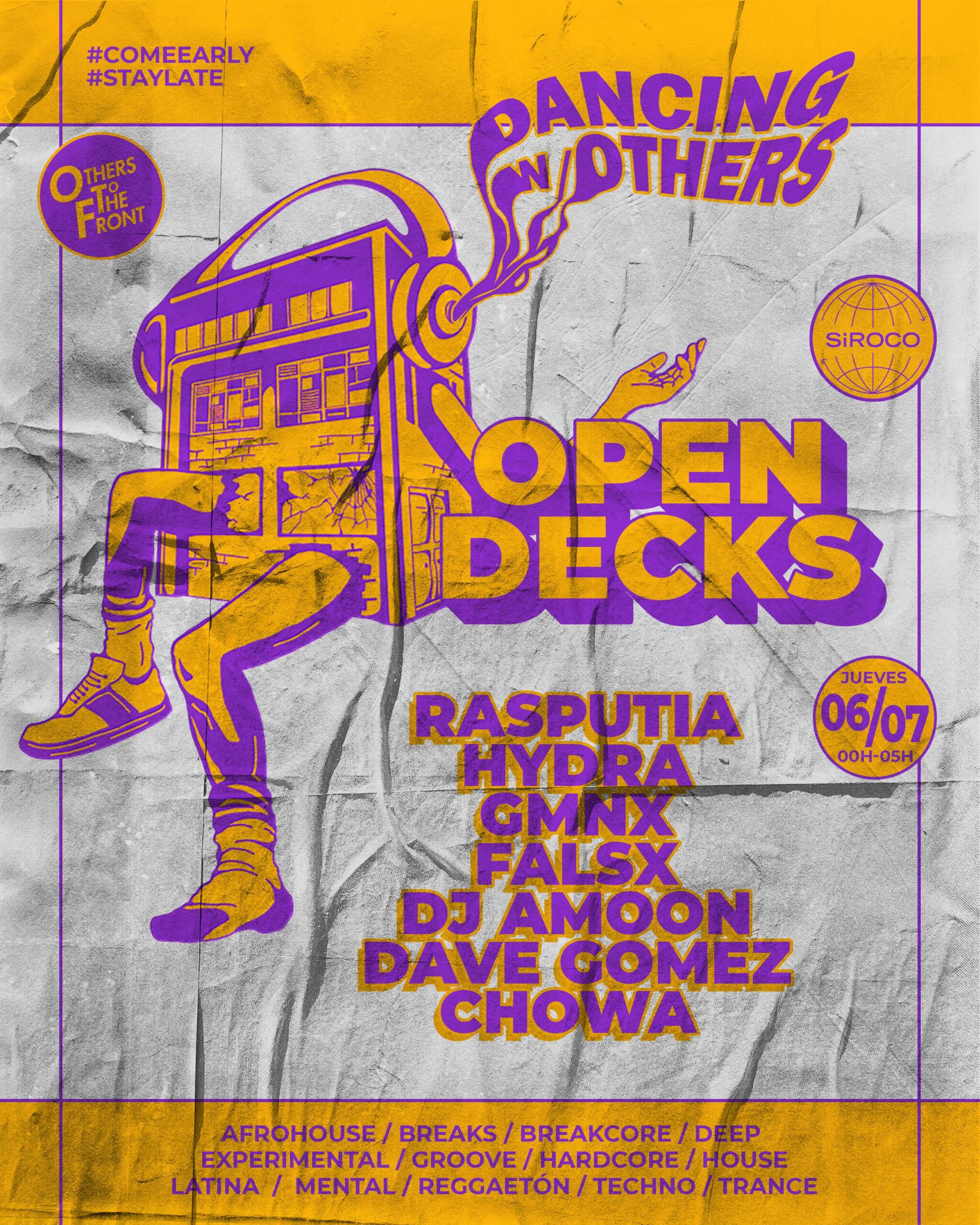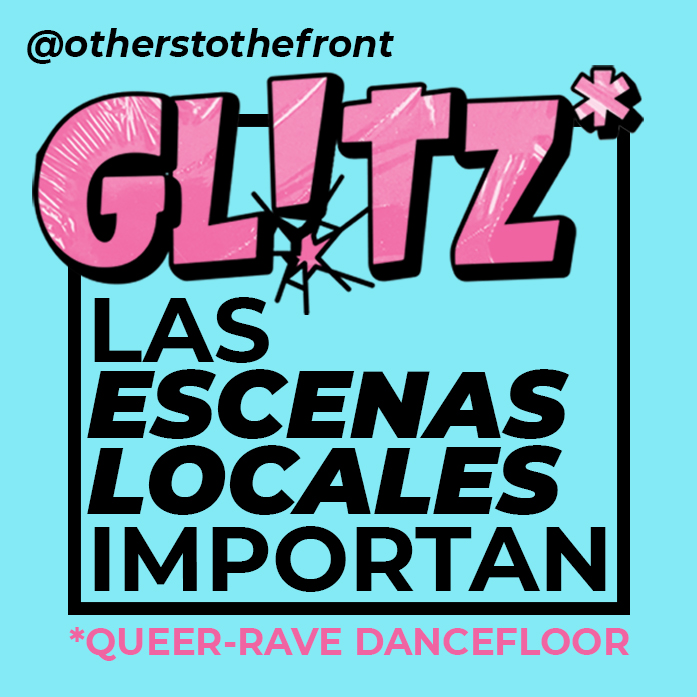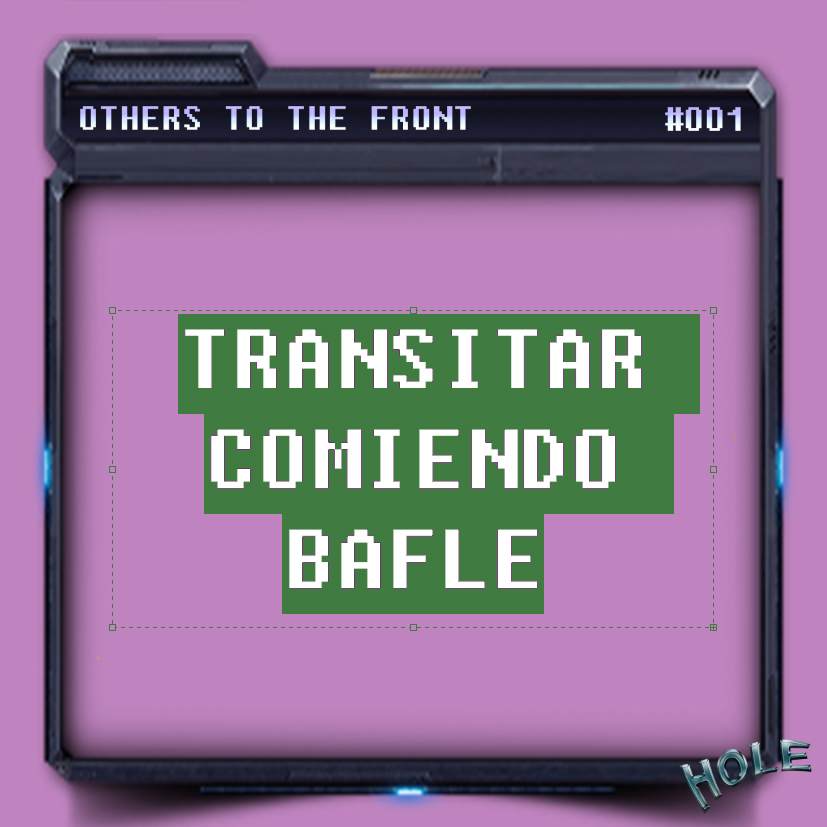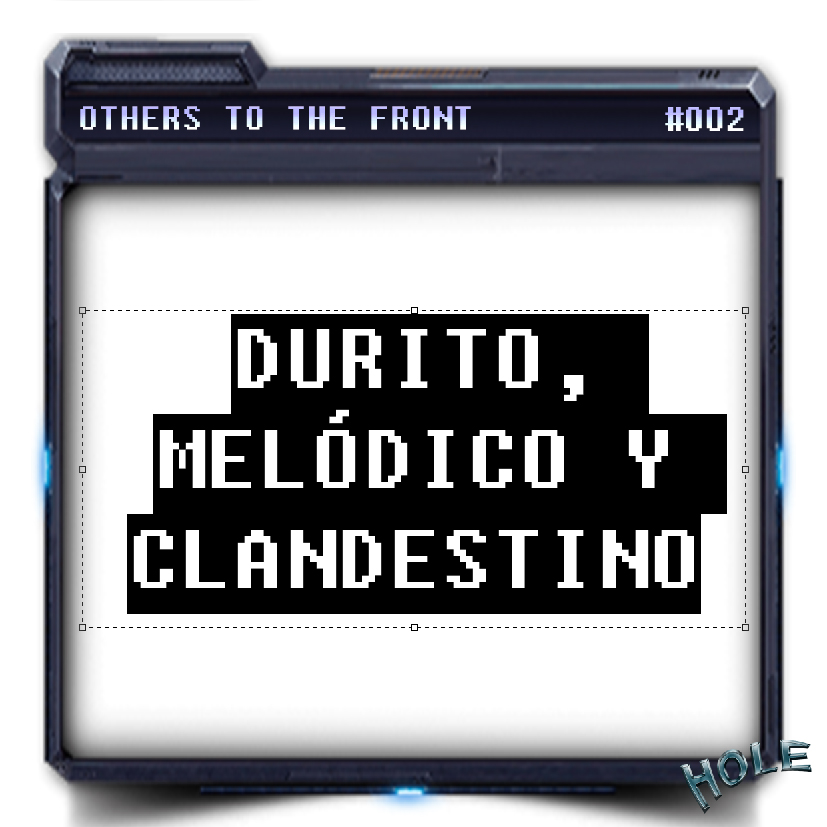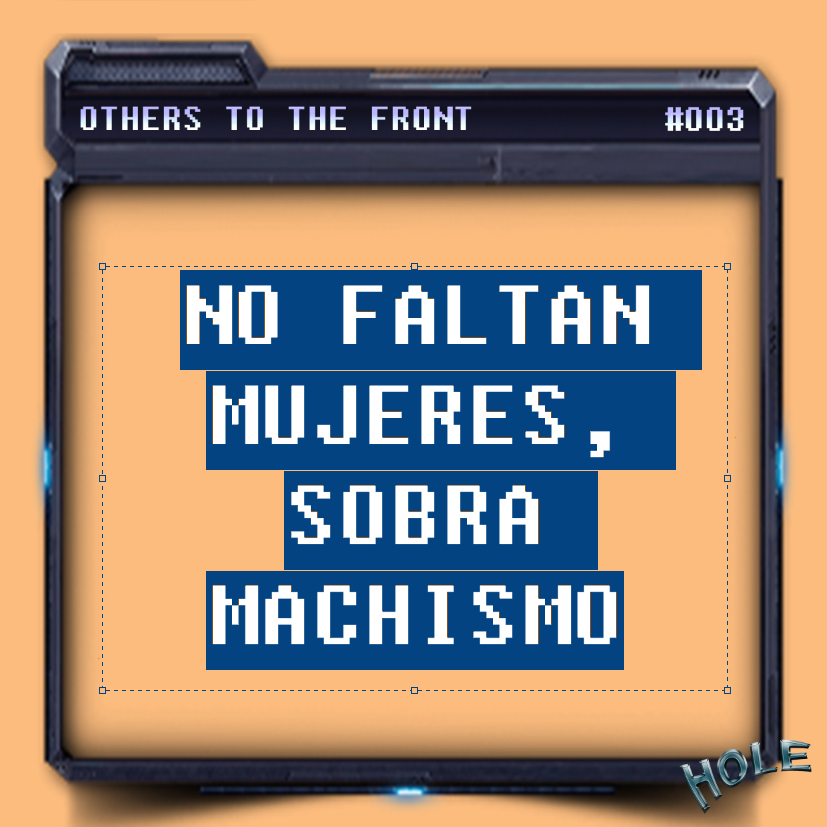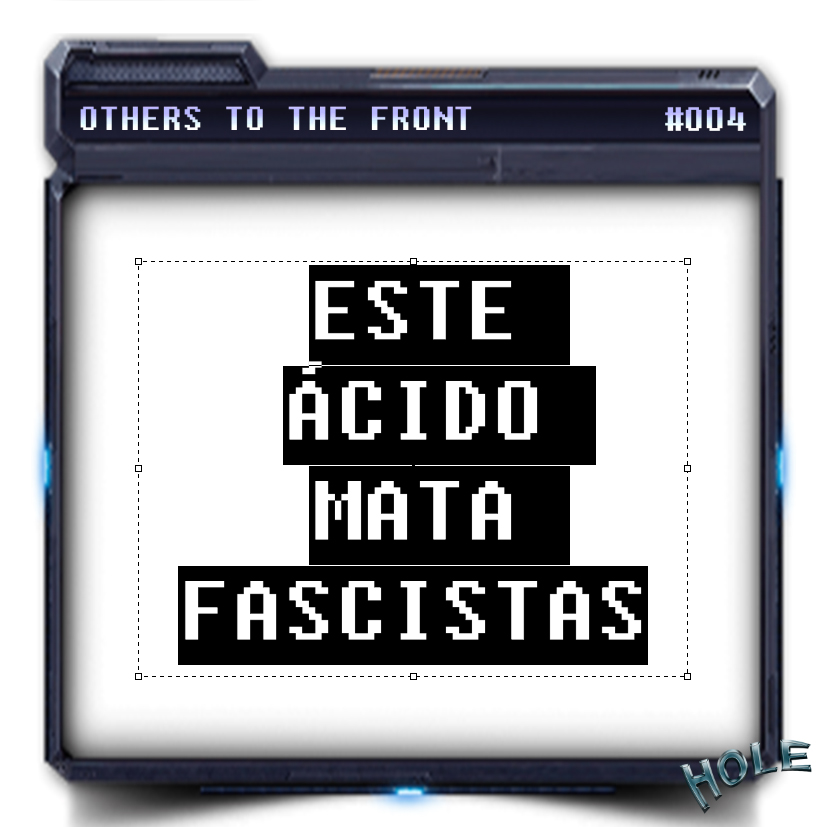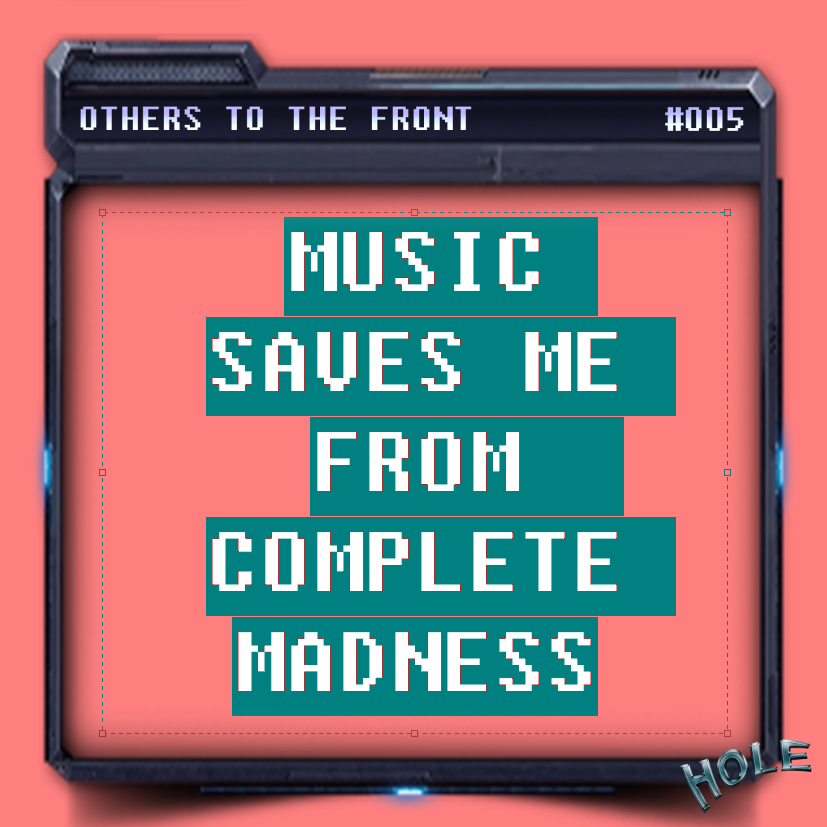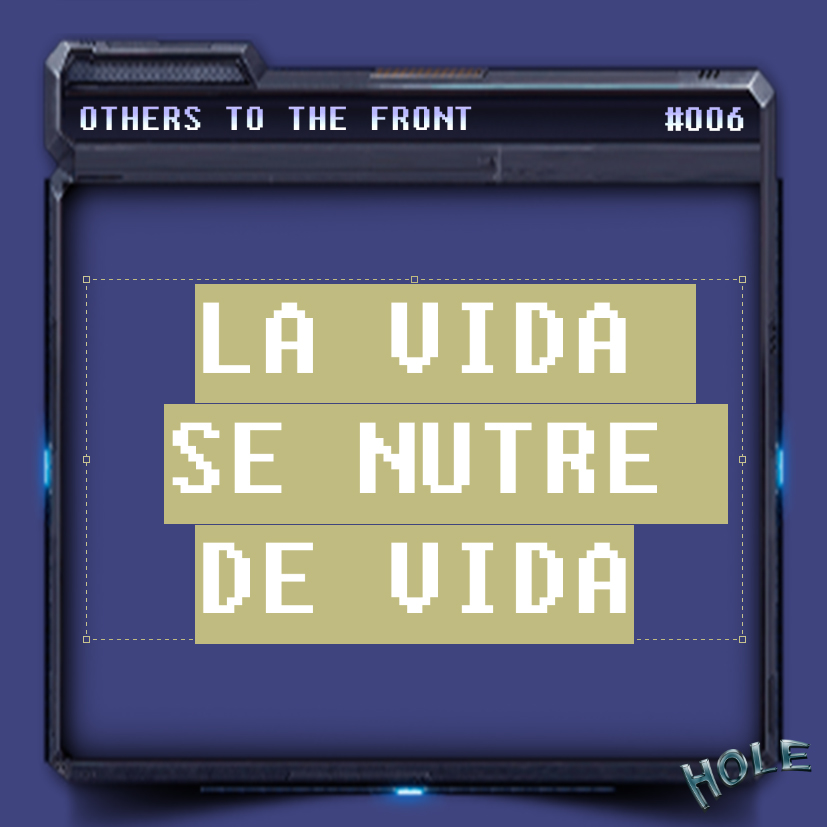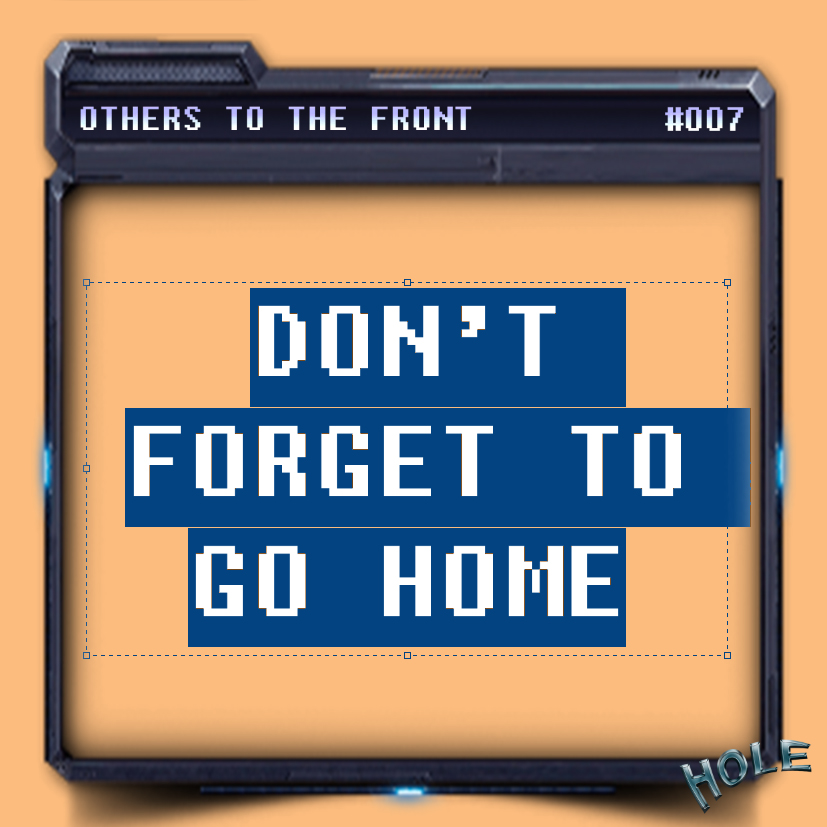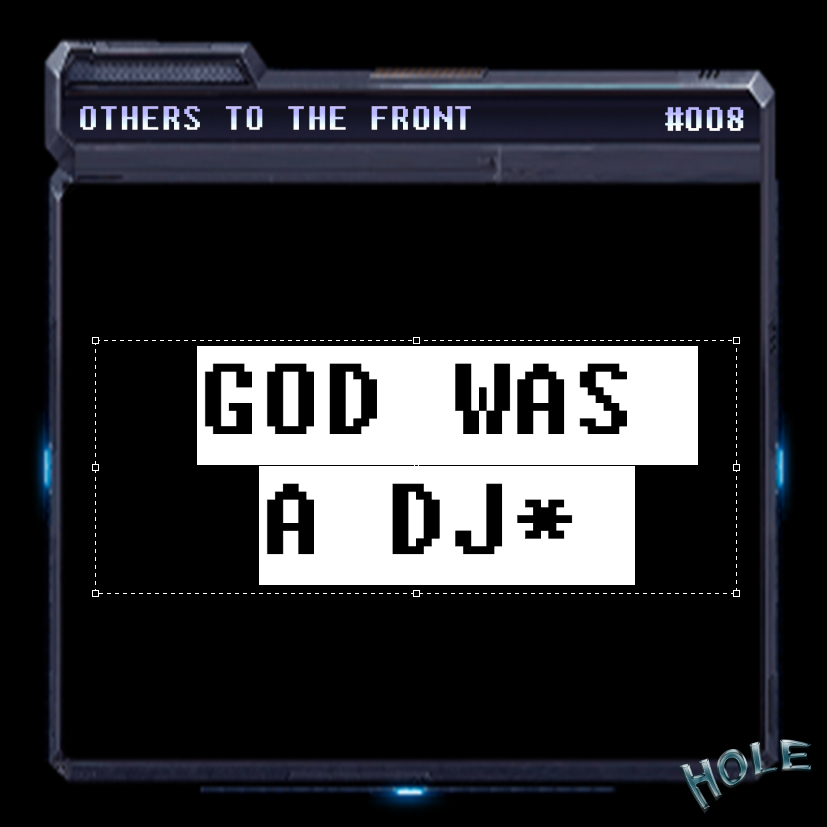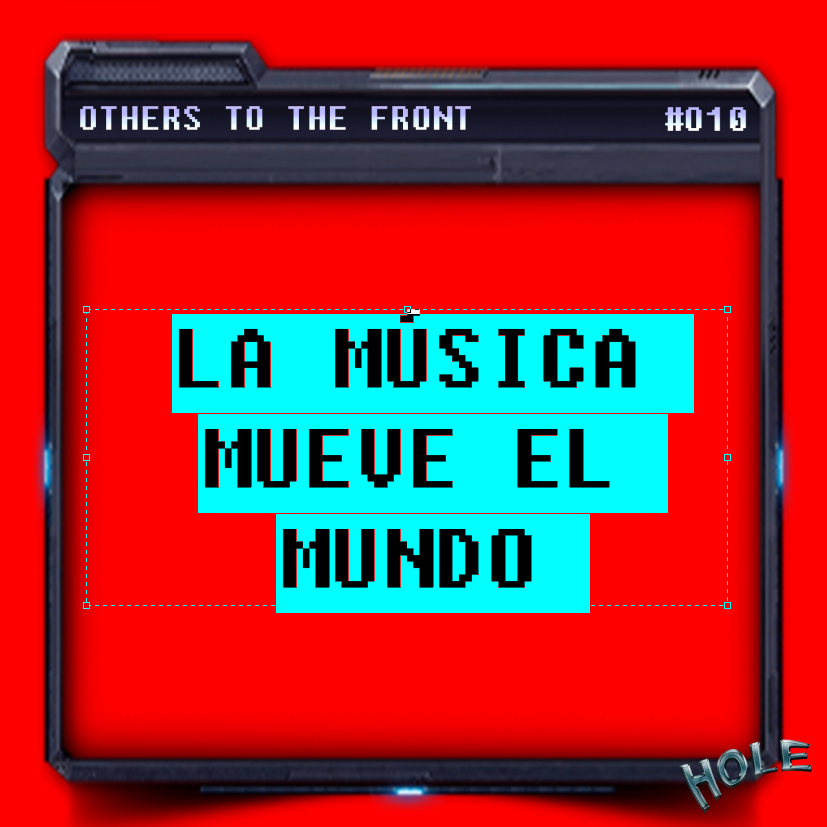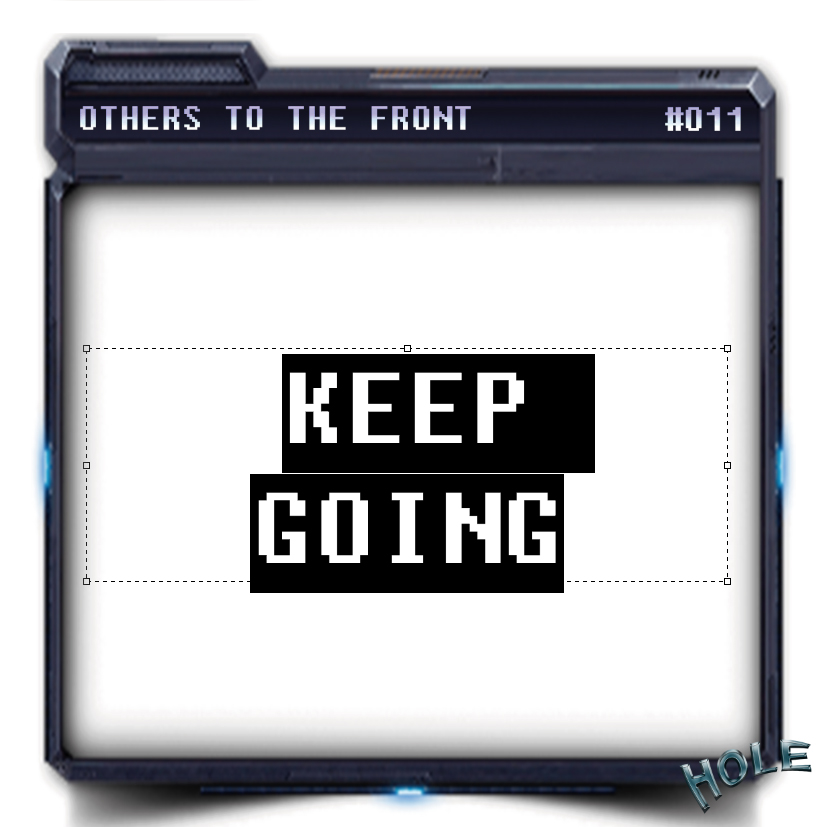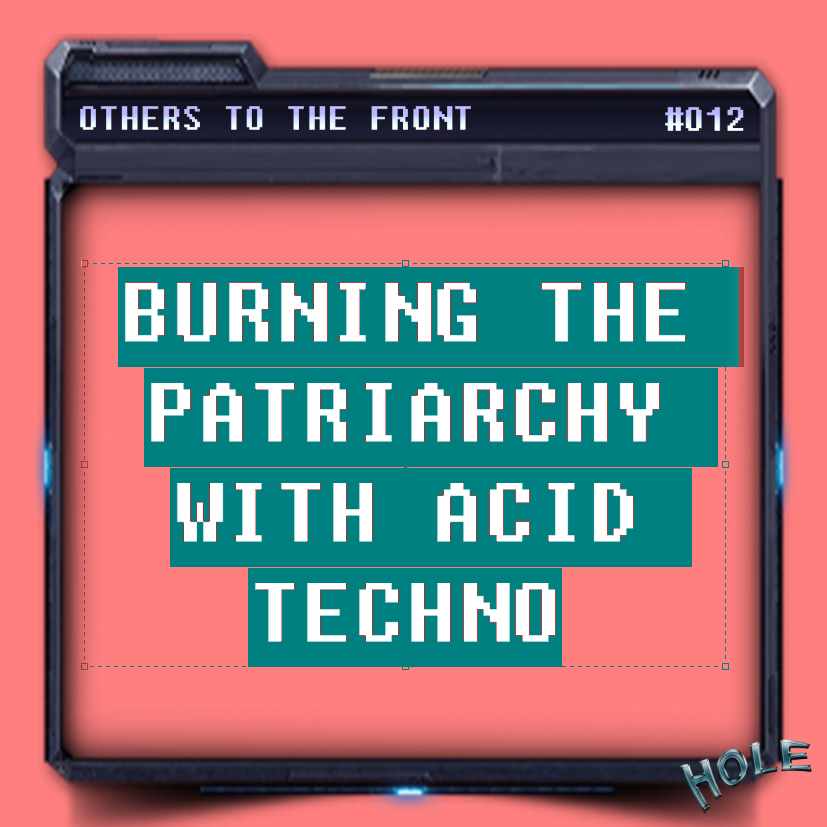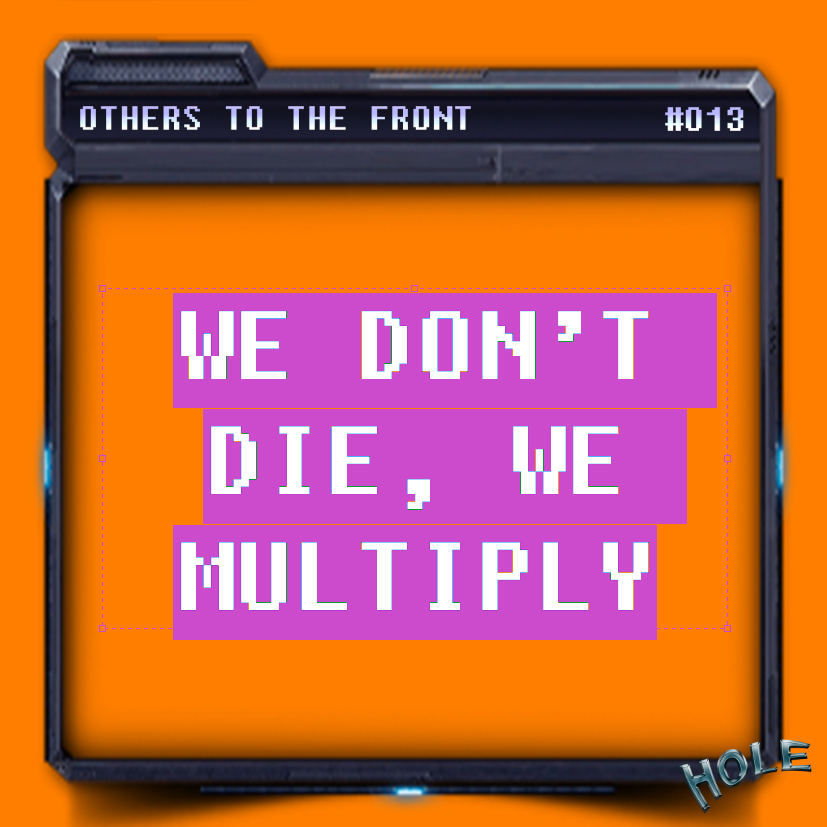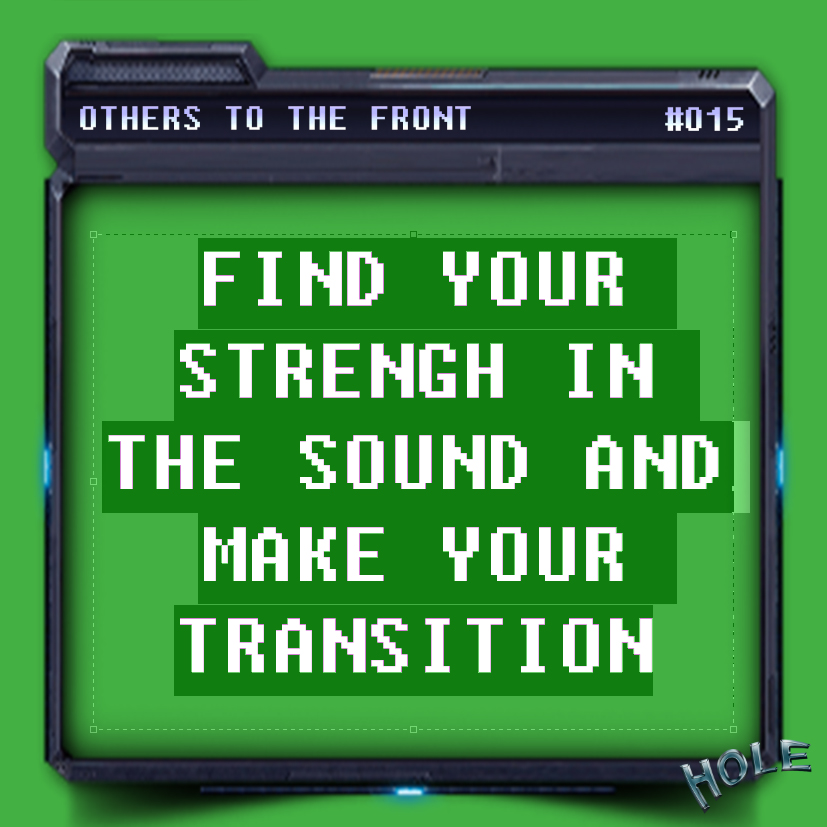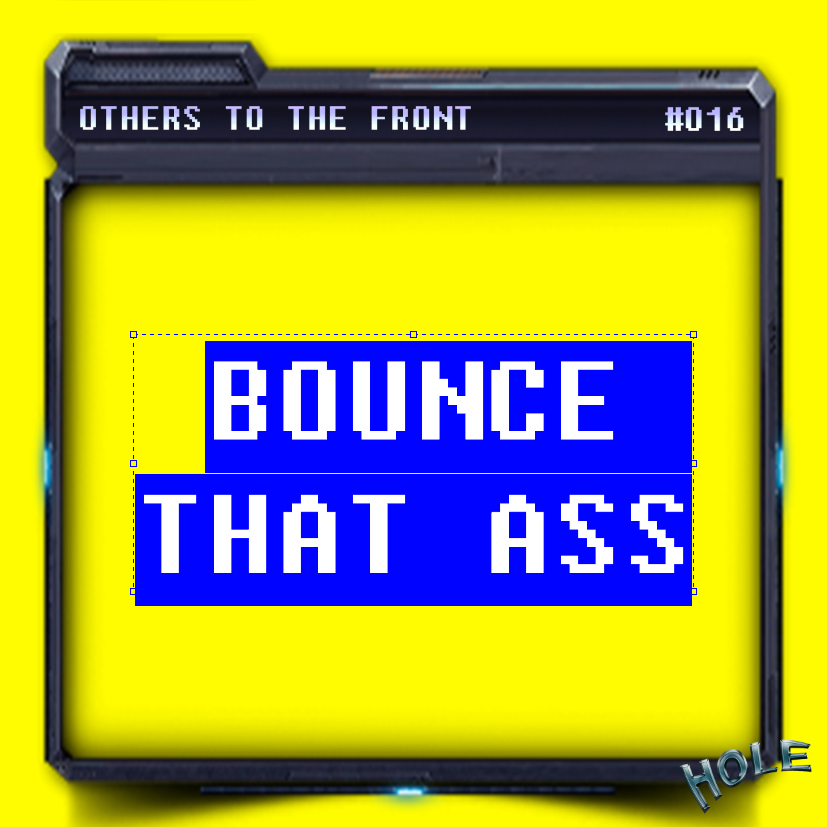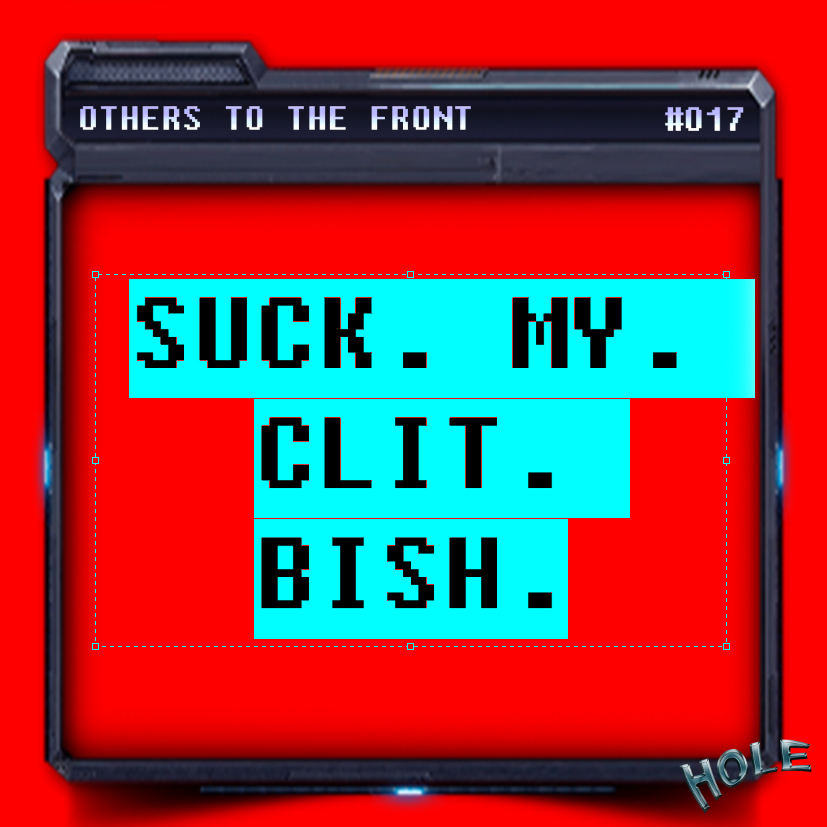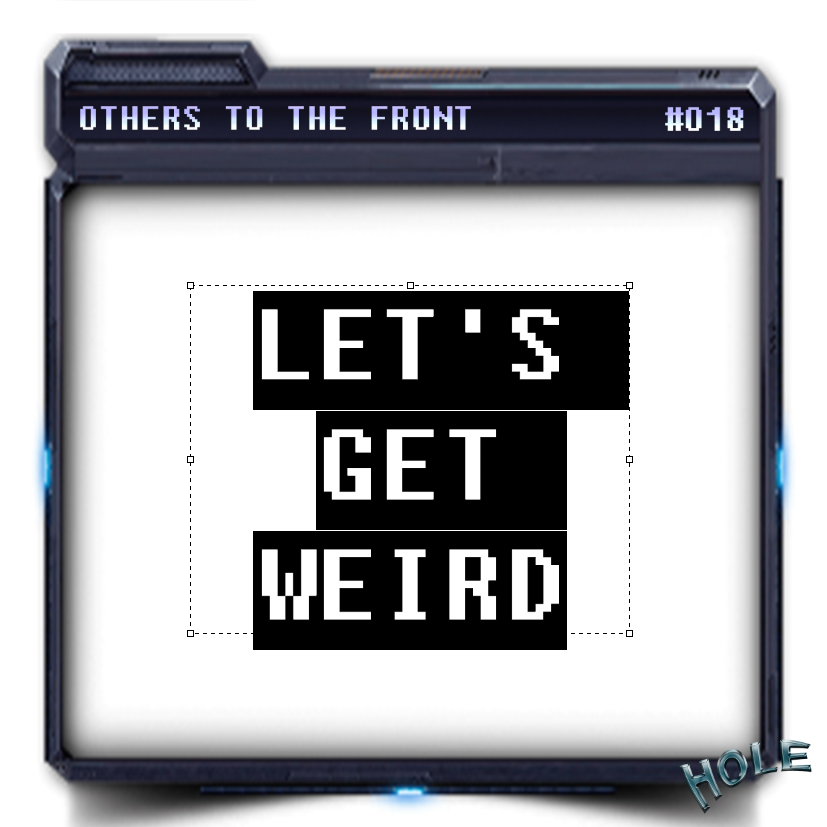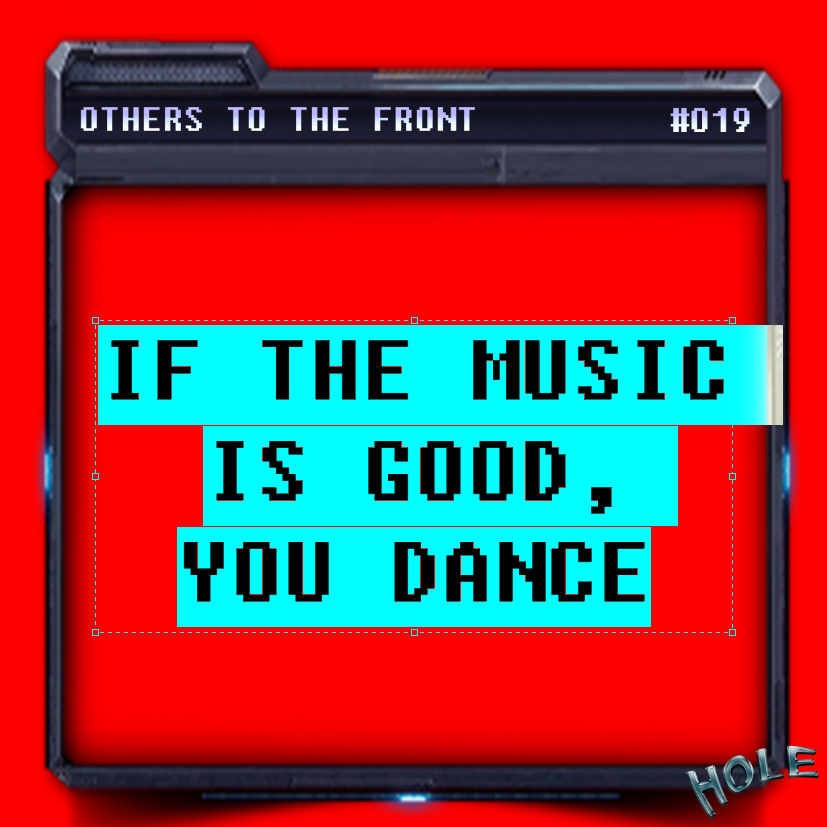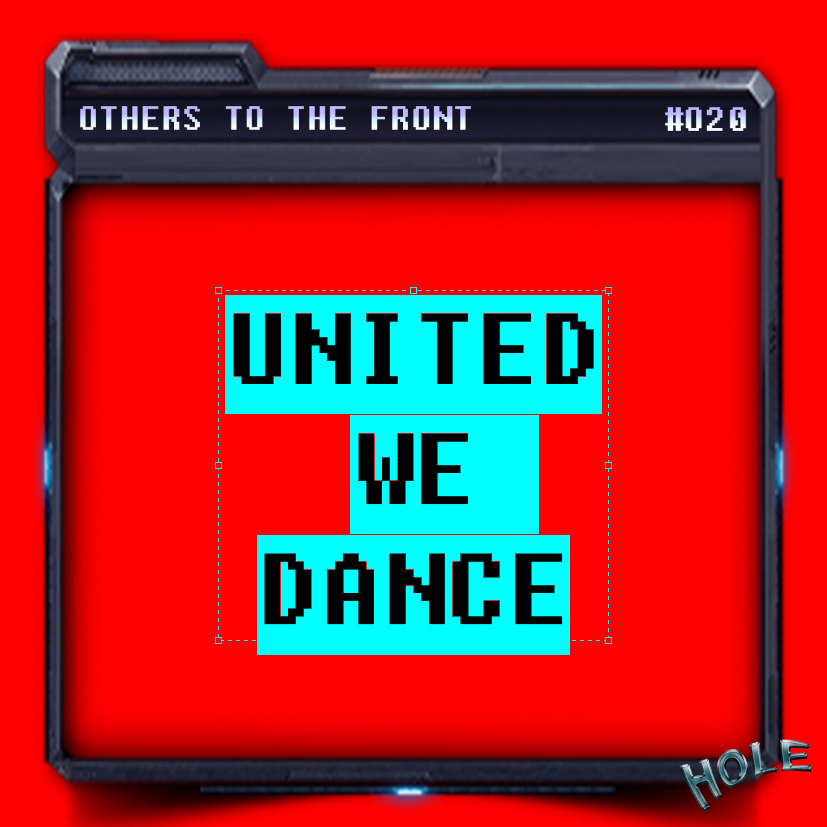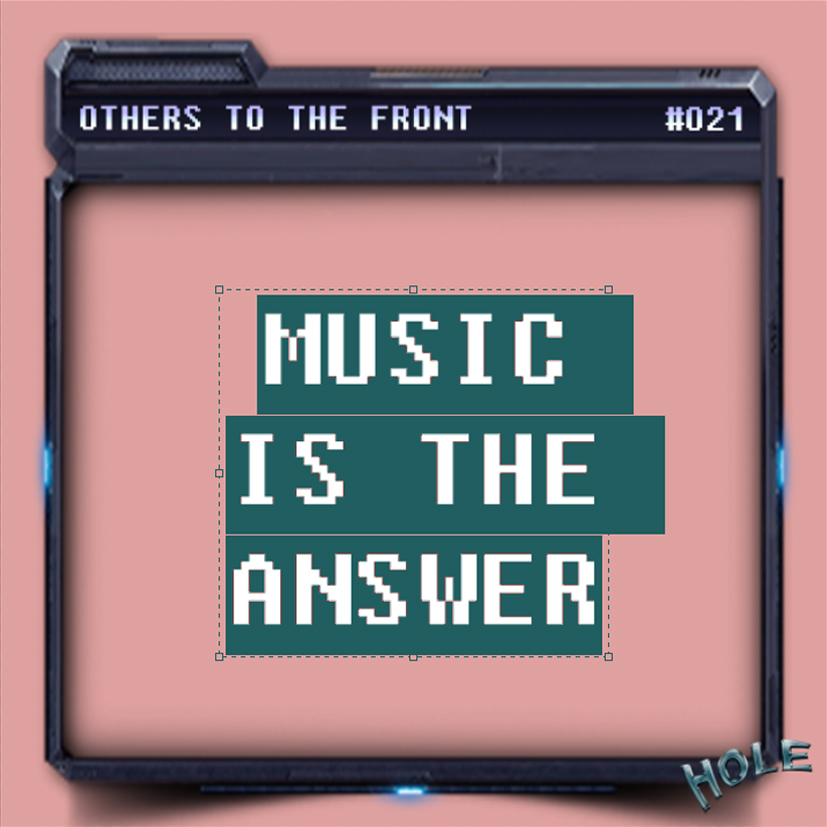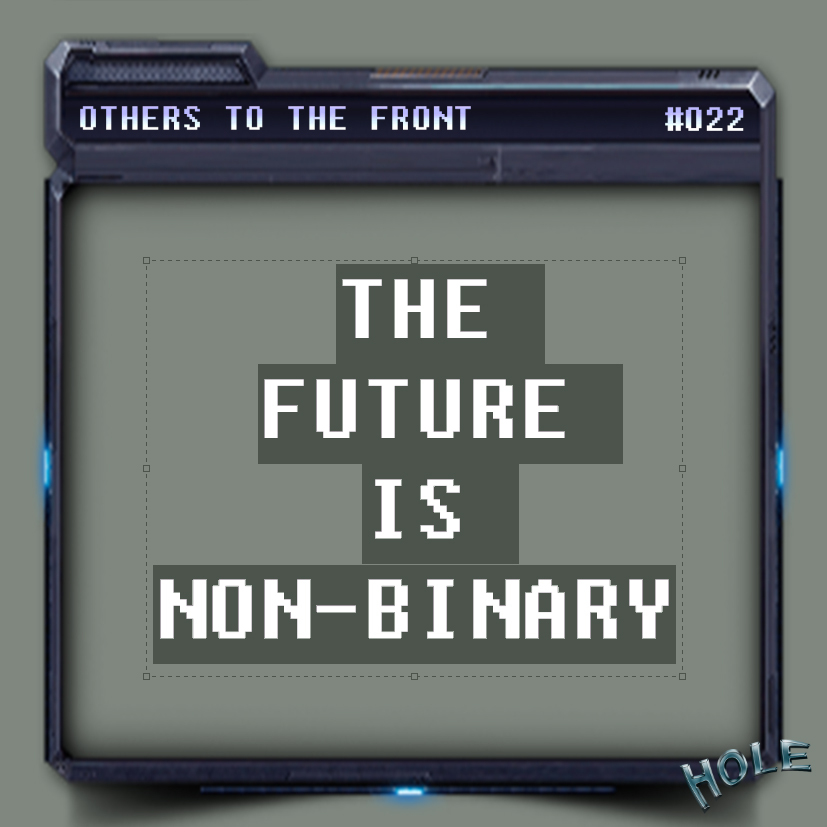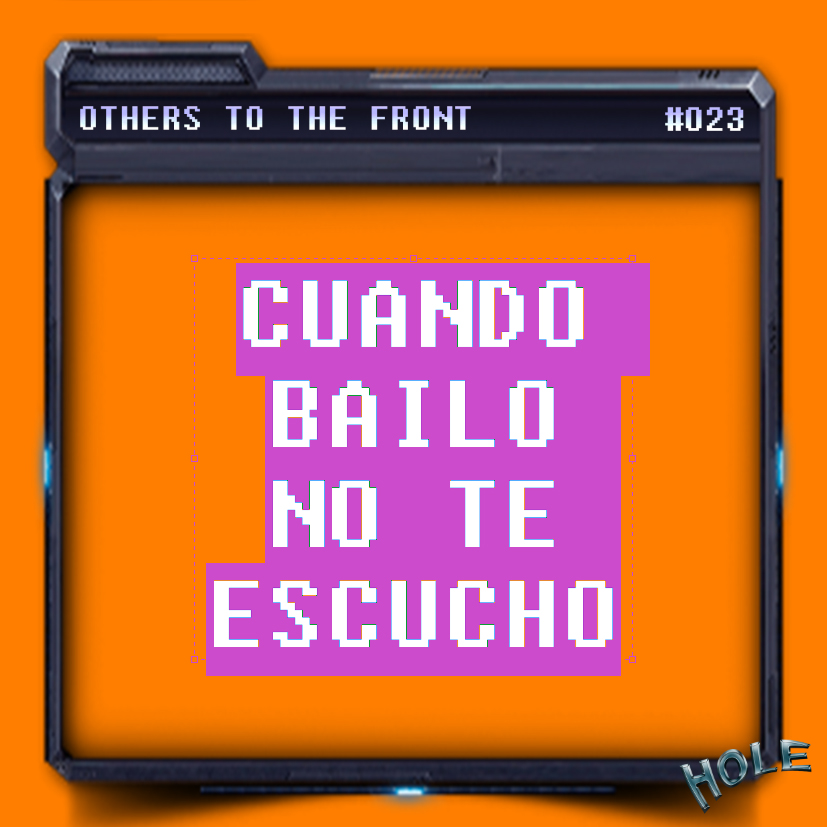- Hola, el jueves 12 de octubre nos encontraremos en la pista de baile ¿podrías presentarte para la comunidad de Others to the Front?
Mi nombre es Panooc y soy une DJ/Productor/Músico Trans-masculino – soy originarie de Escocia pero viví en NYC durante 9 años, primero produciendo y lanzando música House & Techno antes de comenzar mi carrera como DJ y trabajando más activamente dentro de la escena nocturna queer, eventualmente convirtiéndome en parte del colectivo LGBTQ, XOXA NYC.
- Háblenos de XOXA NYC. ¿Cómo empezó todo? ¿Dónde se encuentra actualmente? ¿Cuáles son sus perspectivas de futuro?
XOXA NYC comenzó con mi pareja, Kira, en 2017 como una respuesta directa a un paisaje de la era Trump y una clara falta de representación LGBTQ en las alineaciones de DJ. Ella quería crear un espacio y organizar eventos que dieran protagonismo a artistas marginades, así como música de baile de calidad, y con el tiempo se ha transformado en un hermoso colectivo, mezcla y serie de eventos. Ahora estamos en nuestro sexto año y hemos tenido el placer de trabajar con un montón de grandes artistas de todo el mundo y el espectro de género – dicho esto, yo diría que somos uno de los pocos grupos LGBTQ FLINTA que todavía pone un gran enfoque en la música House en Nueva York. De cara al futuro, Kira y yo nos hemos mudado al Reino Unido, mientras que el resto del colectivo sigue fuerte en Nueva York. Estamos entusiasmades por ampliar nuestras conexiones con otros colectivos queer en Europa y ver a dónde nos lleva el camino. 🙂
- Al estar arraigade tanto en la escena queer neoyorquina como en la escocesa, ¿qué puedes contarnos sobre estas diferentes escenas? ¿Cómo ves su momento actual?
Volví a Escocia a mediados de 2020 y es emocionante porque estoy explorando una escena en la que no tuve muchas oportunidades durante mis años de formación. Dicho esto, Escocia es un país muy pequeño (unos 5 millones en total), así que la escena, incluso dispersa por todas las ciudades, es muy reducida. Hay grandes colectivos underground y grupos de fiesta que organizan eventos fantásticos, pero, dicho esto, Nueva York es un lugar mucho más grande, un punto de encuentro de la diversidad, y eso siempre se nota en los diferentes tipos de música que se pinchan, en la gente que acude a los eventos y en todo lo demás. Ambos tienen sus propias cosas especiales y, como ocurre con las nuevas generaciones, también aportan nuevas ideas.
- Tanto en Nueva York como en el Reino Unido, las escenas queer son una parte importante de la cultura house, sobre todo en comparación con las escenas continentales. ¿Cómo te ha influido personalmente la cultura house?
En primer lugar, creo que la musicalidad de la música House ha tenido una gran influencia en mí, con las raíces originarias de Chicago que mantienen fuertes cualidades armónicas y melódicas, los grandes elementos percusivos que se encuentran en el sonido House clásico de Nueva York, los estados de ánimo profundos o felices… Me sentí atraíde por eso al principio y luego me di cuenta rápidamente de que podía abrazar mi homosexualidad (y ser viste y aceptade) mucho más dentro de la comunidad de la música House. Obviamente, la escena y el estilo de la música House han cambiado y son diferentes dependiendo de la ciudad o el país al que vayas -y quizás ahora no haya tantos espacios queer en la escena House «mainstream»-, pero sigue siendo un género al que siempre vuelvo y por el que siento mucho amor.
- También eres productore y músique de formación, tocas el saxofón. ¿Sientes que hacer música es muy diferente de pinchar como proceso creativo?
Aunque provengo de una formación musical más clásica y jazzística, la curva de aprendizaje a la hora de producir fue bastante larga. Primero fue aprender los elementos que forman parte de muchos ritmos de música house (batería, bajo, armonías comunes, etc.) y después aprender técnicas de producción (ecualización, reverberación, otros efectos, etc.). No hay duda de que se utiliza una parte diferente del cerebro entre ser DJ y producir, y diría que componer es un camino más largo y que requiere más tiempo para empezar a dominarlo, PERO es increíblemente gratificante. Creo que mi proceso de composición es similar al de mis sesiones de DJ: me gusta ofrecer al oyente algo imprevisible pero que funcione de forma sincronizada. Y en lo que respecta al proceso técnico entre las dos disciplinas, siempre trabajo el oído con ambas: si ajustas el ecualizador mientras eres DJ, utilizas las mismas herramientas cuando escribes un tema. Simplemente hay que entrenar mucho el oído hasta que eres capaz de distinguir los distintos elementos y lo que sonará bien o interesante.
- ¿Recuerdas el primer tema que tocaste en público? ¿Puedes contarnos cómo viviste esa experiencia?
Empezaré con mi primera experiencia en un concierto: me inicié como DJ con bastante cautela porque creo que en aquella época (al ser mujer de nacimiento) había mucha misoginia, incluso en los grupos de amigos DJ con los que me juntaba por aquel entonces, que eran predominantemente cis y heterosexuales, así que al principio me sentí bastante intimidade, tanto por aprender el arte como por tocar, lo cual era una locura porque había pasado años de mi pequeña vida de gira internacional tocando en conciertos de jazz delante de miles de personas. Pero era entrar en un mundo nuevo e intentar superar de nuevo la ansiedad por actuar, así que creo que la primera vez que toqué delante de alguien fue emocionante ver cómo se desarrollaba ante sus ojos. Recuerdo que uno de los primeros temas que pinché fue uno que me enamoró del género Deep House de Berlín, un tema de Tigerskin llamado «Feel For You«. Todo en ese tema me transporta a un lugar feliz y sensible, y todavía lo siento tan fresco.
- Cuando echas la vista atrás, ¿hay algo que eches de menos de aquellos primeros días de pinchadiscos? ¿Y algo que te alegre haber dejado atrás?
Echo de menos parte de la música que pinchaba entonces. Al darme cuenta de que llevaba años coleccionando música nueva y no revisando la que ya tenía, hace poco repasé mi colección y fue increíble volver a encontrar esos grandes temas que solía pinchar en aquellos primeros tiempos; casi todos siguen siendo actuales, pero algunos incluso se adaptan mejor a las tendencias actuales que entonces. Es genial cómo funciona esto con la música. Para responder a la segunda parte de la pregunta, me alegro de haber dejado atrás ciertas partes de la escena DJ que simplemente no me servían y eran problemáticas: con la fiesta y la libertad que conlleva, he experimentado comportamientos bastante oscuros (sobre todo por parte de hombres heterosexuales cis) y llegó un punto de ebullición en el que tuve que denunciarlo y alejarme. No echo de menos ese capítulo de mi carrera como DJ ni de mi vida, y siempre me aseguro de que otras personas, especialmente de la comunidad FLINTA, sepan que no tienen por qué pasar por lo mismo y que tienen apoyo…
- El informe FACTS de female:pressure dice claramente que las personas FLINTA siguen muy al margen de los grandes carteles y festivales. Cuenta que en algunas ciudades europeas, como Berlín o Londres, se están desarrollando nuevas escenas queer rave, pero aún están muy por detrás en recursos en comparación con las escenas dominadas por hombres cis. Sin embargo, en otras ciudades, como Madrid, sigue siendo habitual encontrar lineups de hombres blancos cis. ¿Qué opinas de esto? ¿Cómo crees que va a evolucionar en un futuro próximo?
Sí, no me sorprende en absoluto que se siga pasando por alto a les artistas FLINTA. Seguimos trabajando en una sociedad patriarcal con normas patriarcales muy arraigadas y, por desgracia, esto tiene un efecto negativo. En lo que respecta a los festivales (y depende de cuáles sean, porque no todos son iguales), no les presto tanta atención porque personalmente prefiero el ambiente de club, pero sé que en los festivales es donde se puede conseguir más dinero *quizá lol*, así que va a haber más competencia y selectividad por esos puestos. Creo que ahora hay mucha más inclusión de la representación queer en las alineaciones de estos eventos más convencionales y heterosexuales pero, al ser una comunidad minoritaria (especialmente la trans), creo que todavía va a ser una lucha continua por el respeto y la exposición durante algún tiempo. Podría contaros muchas historias de mis propias experiencias en eventos tanto heterosexuales como queer en los que he participado, que son a la vez positivas y bastante deprimentes, y creo que una gran parte de ello es que la gente no sabe qué hacer con el conocimiento de mi identidad y dónde encajo; puede resultar muy aislante y confuso. Creo que para los individuos del colectivo FLINTA, se trata simplemente de seguir perseverando en la existencia y en la creación artística (¡lo cual puede ser difícil en este mundo en el que vivimos ahora mismo!) y de estar abiertes a otres miembres de la comunidad e intentar no desanimarse demasiado por algunas de las tonterías que ocurren en la industria de la música y la vida nocturna. Creo que habrá más cambios importantes con el tiempo que crearán una escena más justa e incluso más inclusiva, a pesar de los defectos de la naturaleza humana, pero tenemos que seguir trabajando en ello.
- Fuiste le primere DJ que publicó una mezcla en nuestra serie de podcast House of Others, una mezcla maravillosa que nos ayudó a establecer el tono y el estilo del podcast. ¿Has seguido la serie desde entonces?
Me lo pasé muy bien haciéndolo, ya que fue una buena sesión para echar la vista atrás y recordar los temas de house clásico y británico que me han inspirado en este viaje como DJ. He estado siguiendo más de los artistas que habéis estado lanzando para ello (¡me ha encantado el amor por mi música de algunos de los artistas también!) y creo que es una serie realmente grande porque no sé de muchas series de podcast queer que estén exhibiendo en gran medida la música del espectro house clásico. ¡Un gran respeto! 😀
- Ya que no eres principiante en esto de los podcasts y los programas de radio, ¿puedes recomendarnos algún podcast que realmente sigas y que puedas nombrar como tu favorito?
Hay muchos podcasts que podría recomendar, pero uno que sin duda destacaría es la serie de podcasts Honcho: es un colectivo queer que organiza eventos y un gran festival de acampada todos los años en agosto cerca de Pittsburgh, y publican mezclas geniales de una gran variedad de artistas y géneros queer. Definitivamente, ¡recomiendo echarle un vistazo!
- Nos conocimos durante la pandemia a través de Parcha Party, una fiesta para recaudar fondos organizada por XOXA.En los momentos de autoconfinamiento, muches de nosotres, principiantes, tuvimos, en cierto modo, el tiempo de hacer estos nuevos contactos y conocer gente afín, amante de la música, mucho más allá de nuestras fronteras físicas. ¿Cuál ha sido tu experiencia al respecto? ¿Crees que la comunidad se hizo más fuerte y más grande después de la pandemia? ¿Existe una nueva escena postpandémica?
Lo sentí mucho durante esa época: la pandemia fue cuando empezamos nuestra serie de mezclas XOXA Blend. Era algo que queríamos hacer desde antes, pero creo que entonces no disponíamos de tanto tiempo y energía. Pero cuando empezamos durante la pandemia, fue una forma increíble de conectar con nuestra comunidad y crear algo relevante que continuaría con fuerza después. Al menos en Nueva York, la comunidad tiene la sensación de haber vuelto a sus raíces queer y BPOC, algo que me encanta. Puede que la escena haya olvidado parte de ese espíritu de comunidad solidaria ahora que hemos vuelto a la carrera de ratas habitual, pero por lo demás creo que la escena es mucho más saludable gracias a su diversidad, tanto en la música como en la identidad.
- ¿Hay algo que no puedas soportar en una pista de baile? ¿Cómo describirías tu pista de baile ideal? ¿Has vivido alguna vez algo parecido? ¿Cómo fue?
Sí, ¡jaja! No soporto las pistas de baile abarrotadas en las que los asistentes a la fiesta no son conscientes de la gente que les rodea. Es una pena cuando hay buena música pero la gente está entrando y saliendo de la pista continuamente (y está llena) u ocupando espacio sin ser corteses o agradables con la gente que les rodea. Mi pista de baile ideal sería una en la que todo el mundo tuviera su propio sitio para bailar y en la que todo el mundo, independientemente de su origen o identidad, se lo pasara bien y transmitiera buena energía a les demás de forma consensuada. Un ambiente y una experiencia similar se vivió recientemente en la celebración del fin de semana del Orgullo de Eris Drew y Octo Octa en Nueva York: todo el mundo estaba allí unido y era consciente de les demás ravers que le rodeaban.
- ¿Puedes elegir una foto de tu galería que represente la cultura queer-rave y explicar por qué? ¿Puedes contarnos la historia que hay detrás de la foto?
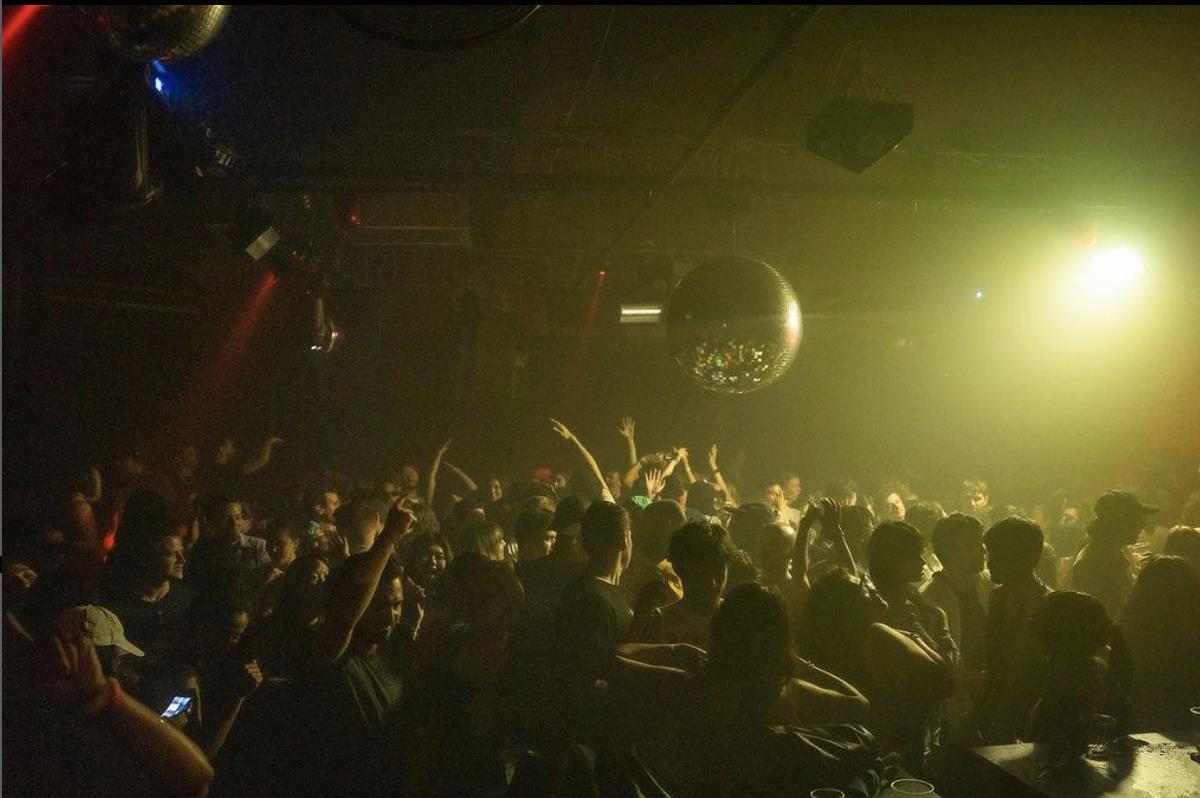
Creo que hay muchas escenas diferentes que se pueden tomar de la cultura queer rave – esta foto fue sacada durante nuestro último evento del NYC Pride en Good Room en Brooklyn y fue una multitud realmente encantadora y diversa y otro ejemplo de gente que trae buenas vibraciones y respeto a los demás en la pista de baile.
**********
- Can you introduce yourself? What does our community need to know about you?
My name is Panooc and I’m a Trans-masc DJ/Producer/Musician – I’m originally from Scotland but I lived in NYC for 9 years, first producing and releasing House & Techno music before I began my DJ career and working more actively within the queer nightlife scene, eventually becoming a member of the LGBTQ collective, XOXA NYC.
- You are rooted both in the New York and Scottish queer scenes, what can you tell us about these different scenes? How do you see their current moment?
I moved back to Scotland around mid-2020 and it’s exciting because I’m getting to explore a scene that I didn’t have much opportunity to during my formative years. That being said, Scotland is a very small country (around 5 million total) so the scene, even dispersed over all the cities, is very small. There are some great underground collectives and party crews putting on some fantastic events but that being said, NYC is a much bigger place, such a hotspot of diversity and you’ll always find that with the different kinds of music being played there, the people going to the events and everything else in between. They both have their own special things going on and, as is with the next generations, they’re bringing new ideas to the table too!
- Both in NY and the UK, queer scenes are a big part of house culture, particularly when compared to continental scenes. How has house culture influenced you personally?
First, I think the musicality of House music has had a big influence on me, with the originating Chicago roots upholding strong harmonic & melodic qualities, the big percussive elements you’d find in the classic NYC House sound, deep or uplifting moods… I was drawn to that initially and then quickly realized that I could embrace my queerness (and be seen and accepted) a lot more so within the House music community. Obviously, the scene and the style of House music has changed and is different depending on the city or country you go to – and there isn’t perhaps as many queer spaces in the “mainstream” House scene now – but it’s still been a genre that I always return to and have a lot of love for.
- Tell us about XOXA NYC. How did it all begin? Where is it at the moment? What are your future perspectives?
XOXA NYC began with my partner, Kira, starting it in 2017 as a direct response to a Trump-era landscape and a distinct lack of LGBTQ representation in DJ lineups. She wanted to create space and host events that would give a spotlight to disenfranchised artists as well as host quality dance music and over time it’s transformed into a beautiful collective, mix & events series. Now we’re in our 6th year and we’ve had the pleasure of working with a lot of great artists from across the world and genre spectrum – that being said, I would say that we’re one of the few LGBTQ FLINTA groups that still puts a big focus on House music in NYC. For the future, myself and Kira have moved to the UK whilst the rest of the collective are going strong in NYC – we still put on events there as it’s still home for us. We’re excited to expand connections with other queer collectives in Europe and see where the path takes us! 🙂
- You are also a producer, and a trained musician, you play the saxophone. Do you feel that making music is very different from djing as a work process? How so?
Even though I came from a more classically/jazz trained background with music it was still quite a learning curve where producing is concerned. First, it was really learning the elements that go into many House music grooves (with the drums, bass, common harmonies etc) and then really learning production techniques (with EQ’s, Reverb, other effects etc) – the beauty of it all is we’re always learning with this art! There is definitely a different part of the brain being used between DJing & producing, and I would say that writing is a longer, more time-consuming road to start to master BUT is incredibly rewarding. I feel like my process with writing is similar to that of my DJ set directions – I really like to give a listener something unpredictable but that works in synchronicity. And in terms of the technical process between the 2, I always just keep working on my ears with both – if you’re adjusting EQ’s whilst DJing, you’re using the same tools when you’re writing a track. It just takes a lot of training of the ear until you’re able to distinguish different elements and what will sound good or interesting.
- Do you remember the first track that you played in public? How did that first gig go? Can you tell us about that experience?
I’ll start with my first gig experience – I transitioned into DJing quite cautiously because I think at the time (being female assigned at birth) there was a lot of misogyny at bay, even with DJ friend groups I hung out with at the time who were predominantly cis & straight, so I felt pretty intimidated at first to both learn the art of it and play out which was crazy because I’d spent years of my little life touring internationally, playing jazz gigs in front of thousands of people! But it was stepping into a new world and trying to get over performance anxiety all over again so I think the first time I really played in front of anyone, it was exhilarating to see it unfold before your eyes. I can remember one of the first tracks I played out was one which really threw me in love with the Deep House genre from Berlin, it was a Tigerskin track called ‘Feel For You’. Everything about that track just transports me to a happy, sensitive place and it still feels so fresh for me.
- When you look back, is there something you miss from those early days of djing? And something that you feel glad to have left behind?
I miss some of the music I used to play then! Realizing I had gone through years of just collecting new music and not reviewing what I already had for a long time, I went through my collection recently and it was amazing to find these great tracks again that I used to play in those early days – almost all of them are still fresh but some of them are even better suited to today’s trends than they were then! It’s so cool how that works with music! To answer the second part of your question, I feel glad that I left behind certain parts of the DJ scene that just weren’t serving me and were just problematic – with the partying and freedom that comes with the territory, I’ve experienced some pretty dark behavior (mostly from cis, straight male individuals) and there came a boiling point where I had to call it out and step away. I don’t miss that chapter of my DJing career or life and I’m always making sure that other people, especially from the FLINTA community, know that they don’t have to put up with experiencing the same kind of thing and that they have support..
- The FACTS report from female:pressure says clearly that FLINTA people are still very much left out of the big line ups and festivals. It seeks that in some European cities such as Berlin or London, new queer rave scenes are developing, but still lag well behind in resources compared to cis male dominated scenes. However, in other cities, like Madrid, it is still usual to find all cis white male men lineups. How do you feel about this? How do you think this is going to evolve in the near future?
This is such a complex question – yes, it doesn’t surprise me one bit that FLINTA artists are still being overlooked. We’re still very much working within a patriarchal society with very ingrained patriarchal standards and there is an unfortunate, negative trickle-down effect because of it. Where festivals are concerned (and it depends on which ones, because they’re not all created equal), I don’t really pay as much attention to them because I personally prefer the club setting but I do know that with festivals, that’s where bigger money can be found *maybe lol* so there’s going to be more competition and selectiveness for those spots. I do think there is a lot more inclusiveness now to queer representation on lineups in these more mainstream, straight events now but, being a minority community (especially trans), I think it’s going to be a continued fight for respect and exposure for some time still. I could tell you so many stories of my own experiences with both queer and straight events I’ve played that are both positive and pretty depressing and I think a big part of it is people not knowing what to do with the knowledge of my identity and where I fit in – it can feel very isolating and confusing. I think for FLINTA individuals and collectives, it’s just continuing to persevere with existing and making your art (which can be hard in this world that we live in right now!) and being open to other community members and trying not to get too disheartened by some of the nonsense that goes on in the music & nightlife industry – I think there will be more great changes over time that will create a fairer and even more inclusive scene, despite the flaws of human nature, but we just have to keep working on it.
- You were the first dj to publish a mix in our House of Others podcast, a wonderful mix that helped us set the tone and the style of the Podcast. Have you followed the series since then? How do you see it?
I really appreciate you asking me to do that mix – I had a lot of fun putting it together as it was a good session for me to look back on Classic & UK House tracks that have inspired me on this DJ journey! I have been following more of the artists you’ve been releasing for it (been loving the love for some of my music from some of the artists too!) and I think it’s a really great series because I don’t know of that many queer podcast series that are heavily exhibiting music from the classic house spectrum. Big respect! 😀
- Since you are not new to podcasts and radio shows, can you recommend any podcasts that you really follow and that you can name as your favorite? Why?
There’s quite a lot of podcasts I could recommend but perhaps one I would definitely put forward is the Honcho podcast series – it’s a queer collective that puts on events and a big camping festival every August near Pittsburgh, and they publish great mixes from a variety of queer artists and genres. Definitely recommend checking it out!
- We met because, during the pandemic, you played the same XOXA NYC’s Parcha Party as Materia Hache and we connected to the live streaming of your set, which we found awesome. The self-confinement moments of the pandemic, many of us beginners had, in a way, the time to make these new contacts and meet like-minded, music-loving people well beyond our physical borders. What has your experience been regarding this? Do you feel that the community grew stronger and bigger after the pandemic? Is there a new post pandemic scene?
I felt this greatly during that time: the pandemic was when we started our XOXA Blend mix series. It was something that we wanted to do for a while before that but I think our time and energy wasn’t as spare then. But when we started during the pandemic, it was an amazing way for us to connect with our community and build something relevant that then would carry on strong thereafter. At least in NYC, the community certainly feels like it’s gotten back to its queer and BPOC roots, which I really love. The scene has maybe forgotten some of that supportive community spirit now that we’re back to the usual ratrace of it all but otherwise I definitely think the scene is a lot healthier with its diversity, both in music and identity.
- Is there anything that can happen on a dancefloor that you can absolutely not stand? How would you describe your ideal dance floor? Have you ever experienced something similar? How was it?
Oh yeah, haha! I really can’t stand packed dancefloors where party-goers aren’t being aware of the other people around them – it’s such a shame when there’s good music happening but the crowd are either shoving on and off of the dancefloor continuously (and it’s full) or taking up space and just not being courteous or pleasant to the people around them. My ideal dancefloor would be a busy one but where everyone had their own spot to dance in and everyone, no matter their background or identity, was just having a great time and giving good energy to the other people around them in a consensual way. A similar vibe and experience recently was at Eris Drew & Octo Octa’s Pride weekend celebration in NYC – everyone was just there in unity and conscious of the other ravers around them.
- Can you choose a picture from your gallery that represents, in your view, queer rave culture, and explain why you think so? Can you tell us the story behind the photo?

I think there’s so many different scenes you could take from queer rave culture – this photo was taken during our last NYC Pride event at Good Room in Brooklyn and it was a really lovely, diverse crowd and another example of people bringing good vibes and respect to one another on the dancefloor!
